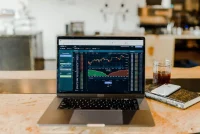The Nairobi Securities Exchange (NSE) on Tuesday, October 26 received regulatory approval to roll out day trading at the bourse. The move is part of the NSE’s plan to enhance market liquidity.
Investors at the bourse have long been clamoring for the introduction of day trading. It will officially go live on November 22, 2021.
Day trading refers to the practice of purchasing and selling a security within a single day or trading session or multiple times over the course of the day. It is preferred by active traders who execute intraday strategies to profit off of price changes for a given asset.
“Day trading is a welcome move for local investors who have previously lobbied for the activation of the intraday trading, as they seek to take advantage of intraday price movements and increase their profit margins. We are confident of a bullish market performance going forward,” noted NSE CEO Geoffrey Odundo.
To encourage day trading, the NSE has included a discounted transactions incentive.
READ>>Buy Or Sell? Analysts Offer Investment Tips For NSE Shares
“The NSE board approved an incentive structure whereby investors who participate in day trades will receive a discount on the second leg of the transaction which will be levied at 0.114% compared to normal trades which are levied at 0.12%. This benefit will be enjoyed by the investor directly through their trading accounts,” a statement read in part.
The bourse noted that necessary infrastructure enhancements had been made to its platform to facilitate day trading. The NSE in October 2019 commissioned a new system that enabled the separation of trading and post-trading activities – making it possible to introduce new offerings such as covered short selling and day trading.
The NSE further noted that the roll-out of day trading was part of deliberate efforts being made to increase investor participation in the market. The launch of the Unquoted Securities Platform (USP) earlier in 2021 was highlighted as a step in the same direction.
NSE is counting on the introduction of day trading to firm up its recovery from the pandemic and solidify its position as the region’s investment hub.
NSE Chairman Kiprono Kittony stated: “Day trading will allow investors to trade on one position, two or three times per day. This will significantly increase our turnovers and attract more investors to the bourse, further entrenching the NSE as a transformational exchange in the region.”

![Local investors have for a long time been clamoring for the introduction of day trading at the Nairobi Securities Exchange (NSE). [Photo/ Economic Times]](https://businesstoday.co.ke/wp-content/uploads/2021/10/selling-stocks-at-the-right-time-is-as-important-as-buying-good-ones.jpg)











Leave a comment